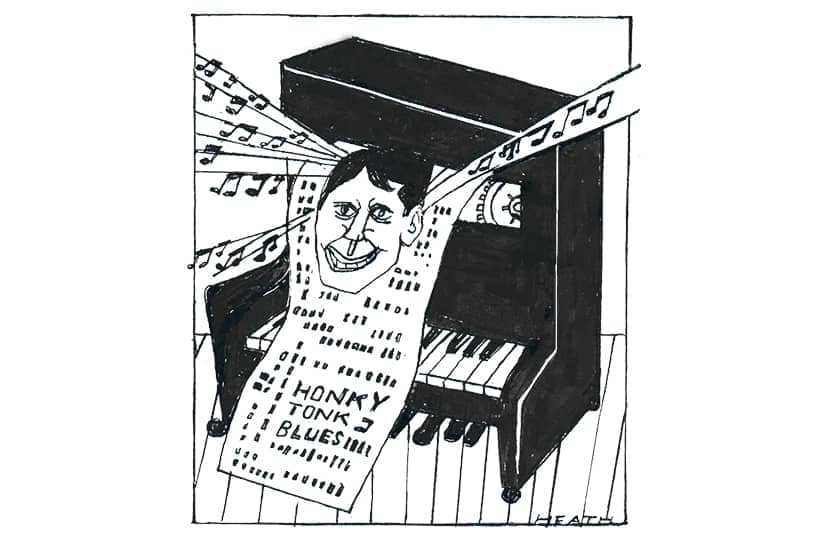My mother died earlier this year aged 85. She left me her old pianola. These were popular in the 1920s and 1930s before people had records and hi-fis. You would put the rolls on the pianolas and they were cut by the great pianists of the day, from the popular players like Charlie Kunz, as well as the star jazz and rhythm pianists like Fats Waller or Jelly Roll Morton, and also the great concert pianists like Rubinstein. You would simply put the piano roll on and then pedal away.
The old war-damaged pianola had been left to her by her mother — and I learnt in my grandmother’s front room — so the old piano has lasted for three generations. Without that pianola, all the extraordinary things in my life would never have been possible. It seemed somehow meaningful that it came back to me when I was making a record of piano music with friends. A piano is one of the few things you can buy which might still be passed down several generations. It used to be in the 1950s that if you spent more on a fridge it would last you longer, or if you bought a Rolls-Royce it would keep going longer than an old Austin, but nowadays that’s no longer the case: everything is disposable, everything has built-in obsolescence and can be chucked away.
I am quite a positive person. The author and guru John Michell once said to me that some people think that if certain events happen then the future will be wonderful. Others will reflect on how there was once a golden age when everything was perfect. However, he advised me that paradise is now, the moment we are in.








Comments
Join the debate for just £1 a month
Be part of the conversation with other Spectator readers by getting your first three months for £3.
UNLOCK ACCESS Just £1 a monthAlready a subscriber? Log in